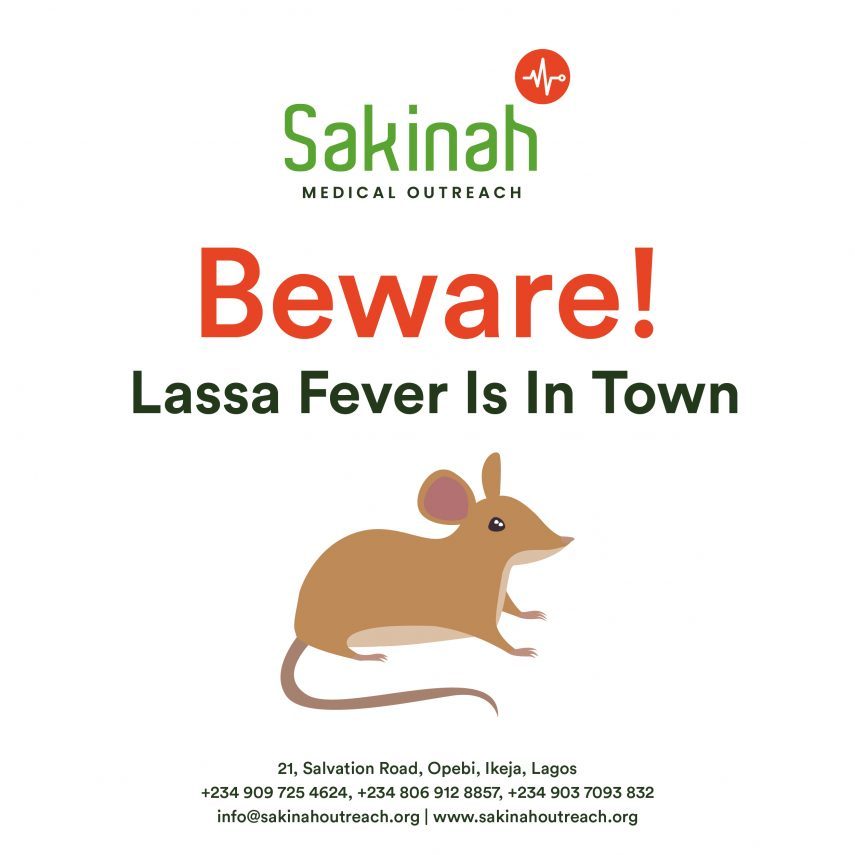WHAT IS LASSA FEVER?
Lassa fever is an animal-borne acute viral illness, discovered in 1969 in Lassa town, Nigeria. It is endemic in parts of West Africa including Sierra Leone, Liberia, Guinea, and Nigeria; however, other neighboring countries are also at risk, as the animal vector for the Lassa virus, the “multimammate rat” is distributed throughout the region.
MODES OF TRANSMISSION
Lassa fever is spread by a type of rat in West Africa.
Lassa fever is caused by infection with the Lassa virus. The virus is spread by a rat that lives in large numbers in west, central, and east Africa. They carry the virus in their urine and droppings and live in homes and areas where food is stored.
People can get Lassa fever through
- Contact with the urine or droppings of an infected rat
- Catching and preparing infected rats as food
- Inhaling tiny particles in the air contaminated with infected rat urine or droppings
- RARELY, direct contact with a sick person’s blood or body fluids, through mucous membranes, like eyes, nose, or mouth
SIGNS AND SYMPTOMS
Signs and symptoms of Lassa fever typically occur 1 to 3 weeks after a person is infected.
- Most people who are infected have mild symptoms and so go undiagnosed. Mild symptoms include slight fever, feeling tired and weak, and headache.
- In some people, the disease may cause more serious symptoms like bleeding; difficulty breathing; vomiting; facial swelling; pain in the chest, back, and abdomen; and shock.
HOW TO CURB THE SPREAD OF LASSA FEVER
- Wash your hands properly to maintain hygiene
- Thrash all foods that have been eaten by rats or has rat droppings
- Wash all cutleries, plates, and pots each time before use
- Keep foods & grains in rat-proof containers
- Do not spread foods on the floor
- Keep homes & environment clean
- Dispose waste properly and away from home
Contact details for emergencies and updates;
PLOT 801 EBITU UKIWE STREET, JABI ABUJA, NIGERIA.
Toll-Free Number: 0800 9700 0010
Whatsapp: +234(0)708 711 0839
SMS Number: +234(0)809 955 5577
Website: www.ncdc.gov.ng
Emails: info@ncdc.gov.ng
Social Media: @NCDCgov
Sources:
NCDC: https://ncdc.gov.ng/diseases/info/L
NCDC: https://ncdc.gov.ng/themes/common/docs/protocols/92_1547068532.pdf

